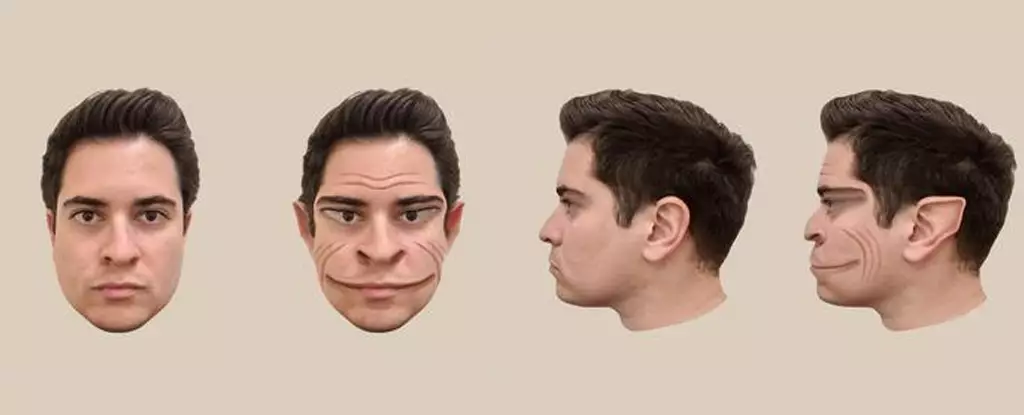The human brain is a complex organ that devotes a significant amount of neurological processing to interpreting facial features. For most individuals, seeing another person’s face triggers feelings of familiarity or fear. However, for a 58-year-old man diagnosed with prosopometamorphopsia (PMO), this facial recognition process is distorted. Instead of seeing familiar faces, the man perceives monstrous and demonic features in the people around him. This rare neurological condition provides researchers with a unique opportunity to delve deeper into how visual systems typically process identifying characteristics.
At Dartmouth College’s Department of Psychological and Brain Sciences, researchers had the opportunity to study the 58-year-old man with PMO. Over two-and-a-half years, the man experienced surrounding faces distorting into grotesque caricatures. Despite the initial distress, the man adapted to the bizarre masks his mind imposed on others. Yet, something wasn’t right. The researchers, including Antônio Mello, Daniel Stehr, Krzysztof Bujarski, and Brad Duchaine, conducted tests that revealed the subject’s experience of PMO was atypical. Unlike other cases of PMO, where flattened images of faces are affected, the man only experienced distortions with real-life faces, not photographs.
Historically, prosopometamorphopsia was viewed as a form of face blindness or prosopagnosia. However, researchers now understand it as a visual distortion rather than an issue of recognizing faces. The condition, considered one of 40-odd examples of Alice in Wonderland syndrome, distorts perception to make people or objects appear larger or smaller than they are. Distinguishing between conditions with similar neurological causes is crucial for accurate diagnoses and treatments. In the case study, the subject’s condition was speculated to be linked to a small lesion near the hippocampus.
One of the challenges of addressing prosopometamorphopsia is that individuals may be misdiagnosed with psychiatric disorders like schizophrenia. As Duchaine, the case study’s senior author, points out, many people with PMO have been prescribed anti-psychotics when the issue lies with their visual system. By sharing experiences like the case study subject’s, awareness can be raised about the condition and reduce the stigma associated with it. It’s essential for individuals with PMO to feel comfortable discussing their challenges with face perception to receive appropriate support and treatment.
Prosopometamorphopsia is a fascinating yet challenging neurological condition that alters the perception of familiar faces. Through detailed case studies and research, like the one conducted at Dartmouth College, researchers can deepen their understanding of this rare condition and improve diagnostic accuracy. By shedding light on the experiences of individuals with PMO, we can work towards providing better support and treatment for those affected by this unique visual distortion disorder.


Leave a Reply